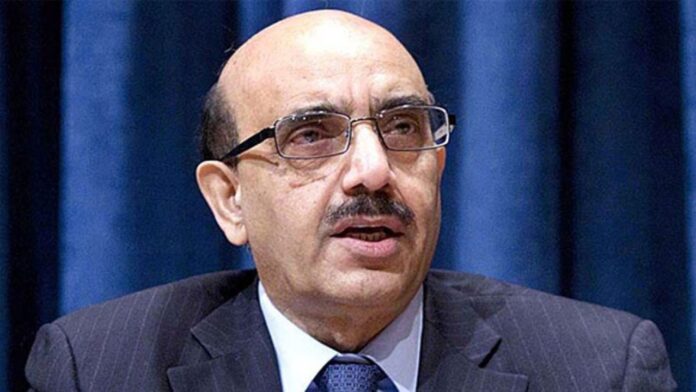WNAM REPORT: Pakistan hopes that whoever is elected as President of the United States in the November election would pay attention to peace and stability in South Asia, and help resolve the decades-old Kashmir dispute between India and Pakistan, Ambassador Masood Khan has said.
“We have to work with whichever administration is chosen by the people of the United States,” Masood Khan, who relinquished his post as ambassador to the US on June 30, was quoted as saying in a Newsweek article on the expectation India and Pakistan have from the presidential rivals — the presumptive Democratic nominee Vice President Kamala Harris and the Republican candidate, former president Donald Trump — now campaigning hard for America’s top job.
“We have to remind Kashmiris that they are not alone in the world,” Ms. Harris said at the time. “We are keeping track of the situation. There is a need to intervene if the situation demands.”
“While Harris has largely refrained from opining on the Kashmir issue since assuming the vice presidency, her past remarks are widely remembered in Pakistan,” the article said. It highlighted that Pakistan has campaigned extensively against New Delhi’s 2019 decision, viewing it as a unilateral violation of international law and a provocation in a dispute that has fueled past wars and still occasional border skirmishes between the two nations.
“We were reassured by some of the statements that were made about Kashmir in 2019, and I include those of Vice President Kamala Harris at that time,” Masood Khan said. “There was a groundswell of support for the rights of Kashmiris.”
He added, “So, we hope that whichever administration is elected, whichever president and cabinet is put in place, they would pay attention to peace and stability in South Asia, because I think that the future of the world hinges on stability in South Asia for a number of reasons, ”
In this regard, Masood Khan called on the U.S. “to demonstrate statesmanship, statesmanship for mediation for other countries towards dialogue, resolution of disputes,” including the dispute over Kashmir.” That’s the role of the United States as a preeminent nation in the world order,” Khan said.
On Afghanistan, Newsweek referred to the ongoing unrest in neighbouring Afghanistan and its impact on Pakistan. Today, the Islamic State militant group’s largely Afghanistan-based Khorasan branch (ISIS-K), the deadliest and furthest-reaching of the many insurgencies active in the region, “was spawned by the War on Terror,” Masood Khan said.
Such is the case for other groups such as the Tehreek-e-Taliban Pakistan (TTP), which continue to wreak havoc in the region, he argued. As such, he said the threat “requires attention,” a level of which he believes has been absent since the U.S. withdrawal from Afghanistan, a process that began under Trump and ultimately carried out under Biden in August 2021. “The attention here in Washington immediately after 2021 dissipated because of a number of reasons,”Masood Khan said. “It was Ukraine, it was this fixation with Indo-Pacific strategy, then there was October 7th and its aftermath there in the Middle East.”
Masood Khan stated that “we have very important relationships” with both the U.S., “the most powerful nation on earth and biggest economy in the world,” and China, “an eminent nation,” that has “caught up and it is developing economically, and it is developing economically at a tremendous speed, and it has influence.
“Thus far, the outgoing envoy said, “The United States or China haven’t directly asked us to choose any of the two countries, so I would say that this is a good model.”
On the other hand, Newsweek’s article, which devotes considerable space to burgeoning US-India relations, said, “The partnership has not been without its challenges under both administrations. But Indian officials today exude confidence that they would be able to work constructively with either Trump or Harris, who would become the first-ever U.S. presidential candidate of Indian heritage if confirmed by her party next month in the wake of Biden’s late-stage dropout.”
The article quote a spokesperson for the Indian External Affairs Ministry as saying, “India and the U.S. have a Comprehensive Global Strategic Partnership, The India-US relationship enjoys bipartisan support in the US and has strengthened under every administration.”
A spokesperson for the Indian Embassy to the U.S. also noted how “India and United States enjoy a comprehensive global strategic partnership driven by shared democratic values” and that “the relationship enjoys wide support in both India and USA and we are confident of further strengthening it.”


